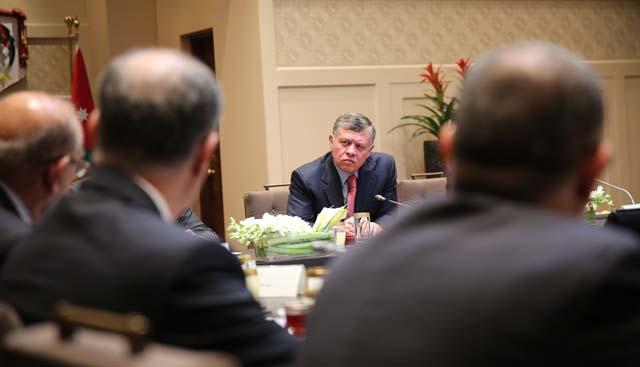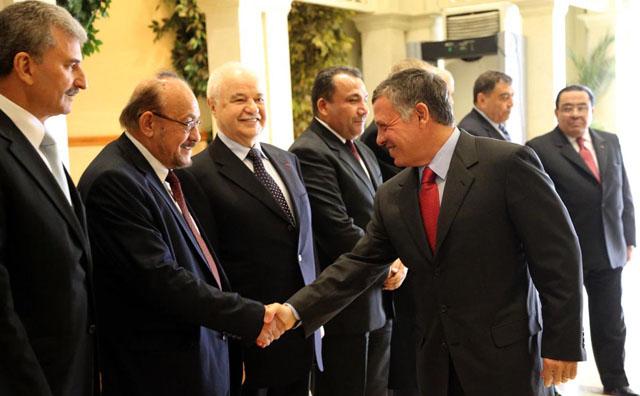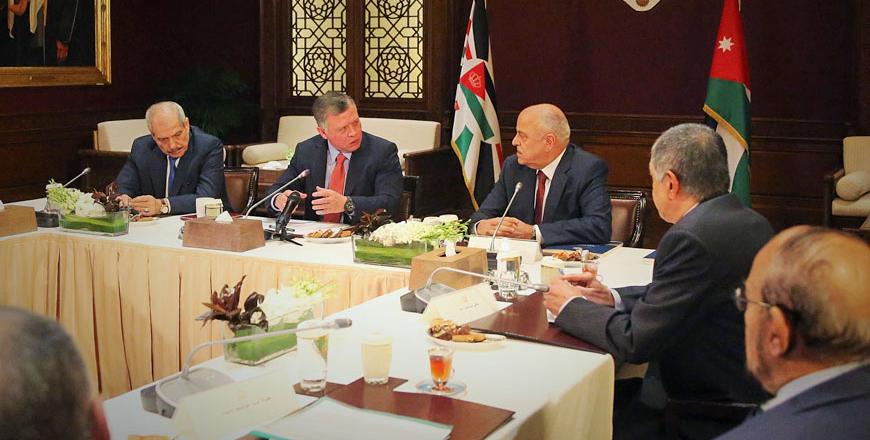You are here
King urges full implementation of National Integrity Charter
Apr 02,2014 - Last updated at Apr 02,2014

AMMAN — His Majesty King Abdullah on Wednesday stressed that the essence of the National Integrity Charter lies first and foremost in justice, equality and transparency.
During a meeting Wednesday with the chairman and members of Royal commission tasked with evaluating and following up on the implementation of the Executive Plan of the National Integrity Charter, the King urged full implementation of the recommendations listed in the charter with utter impartiality and transparency.
The King also said that the Royal commission and other concerned specialised panels should provide accurate information to citizens with complete transparency, noting that the availability of information is a major component of Jordan’s reform endeavour, according to a Royal Court statement.
The Monarch also urged the commission to reach out to all concerned institutions in the public and the private sectors and civil society organisations as it carries out its mission.
Chairman of the commission, Rajai Muasher, presented a briefing on the tasks and action plan of the panel for the next stage, saying that periodic reports will be drafted on achievements and progress in the implementation of the recommendations.
These reports, he added, will include notes on the progress made by each stakeholder and the reasons for delay, if any, along with suggestions on how to address to overcome such impediments.
The panel’s president noted that the executive, legislative and judicial authorities, along with oversight agencies, professional associations and civil society organisations are the key partners in efforts to translate the charter and its plan into facts on the ground.
The Executive Plan was endorsed by a national conference held last year, and in December, the King attended a ceremony to launch both documents, where 2,000 officials, community leaders and representatives of various sectors were present.
The charter addresses major public concerns while its Executive Plan includes a detailed framework and timeline to complete a set of projects and laws to boost national integrity and prevent corruption.
The approved plans and programmes address financial corruption and set guidelines to safeguard public money and assets, uproot corruption in the wider sense of the word and improve services offered to citizens.
Members of the Royal commission are: Hamza Ahmad Haddad, the president of the Economic and Social Council, the president of the board of trustees of the National Centre for Human Rights, Abdul Majeed Thneibat, Abla Abu Olbeh, Wadah Barqawi and Bassem Tweissi.
Related Articles
His Majesty King Abdullah on Sunday tasked former minister Rajai Muasher to chair a Royal commission entrusted with evaluating and following up on the implementation of the Executive Plan of National Integrity Charter, a Royal Court statement said.
AMMAN — His Majesty King Abdullah on Sunday stressed that all institutions should work hand-in-hand to ensure the implementation of the Nati
His Majesty King Abdullah on Thursday received a letter from Rajai Muasher, chairman of the Royal commission tasked with evaluating and following up on the implementation of the Executive Plan of National Integrity Charter.
















